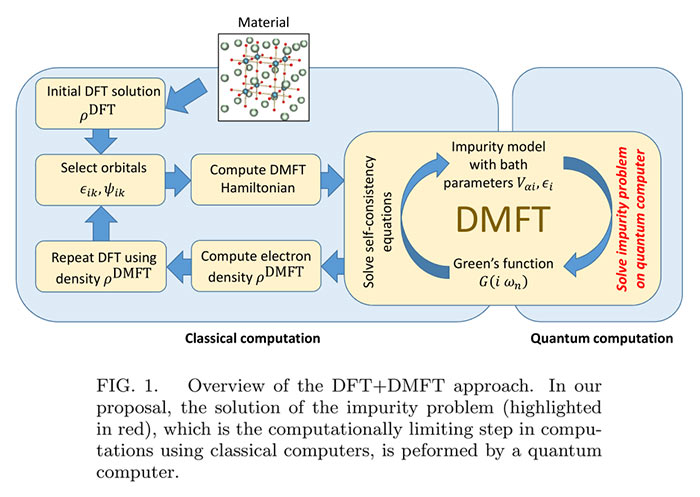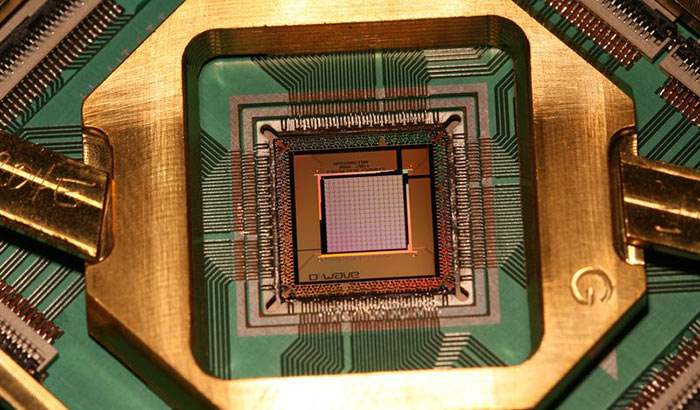A newly published research paper co-authored by scientists from Microsoft Research, Colombia University, and Station Q Zurich suggests that it should be possible to build a quantum computer within the next decade. The researchers cite recent improvements in control of quantum systems as the main development behind their timescale projections.
Talking about how such a quantum computer might function the scientists propose building a computer which blends current computing techniques with quantum technology.

The researchers distilled a proposed hybrid computing example into the diagram, above. In combination the classical and quantum computations can be used to better analyse the properties of complex correlated materials. As you can see, the quantum computer solves a particular part of the problem (the 'impurity problem') based upon dynamical mean field theory (DMFT) in a feedback loop. Meanwhile the classical computing component works on density-functional theory (DFT) calculations. So it's somewhat like a conventional computer with Quantum co-processor.
Benefits of the proposed system are said to be the enabling of "much larger and more accurate simulations than with any known classical algorithm," says the research paper. To make this model an effective working device, computer engineers need to wait until "a small quantum computer with around one hundred logical qubits becomes available".

Interestingly, as reported by The Verge, some of the researchers involved in this project also contributed to a paper which effectively dismissed any computational advantages offered by the D-Wave 2 quantum computer. We recently heard that NASA and Google have extended expensive contracts with D-Wave to get updates from that pioneering firm, so some are impressed by it quantum computer hardware, while others are sceptical about its claims.













